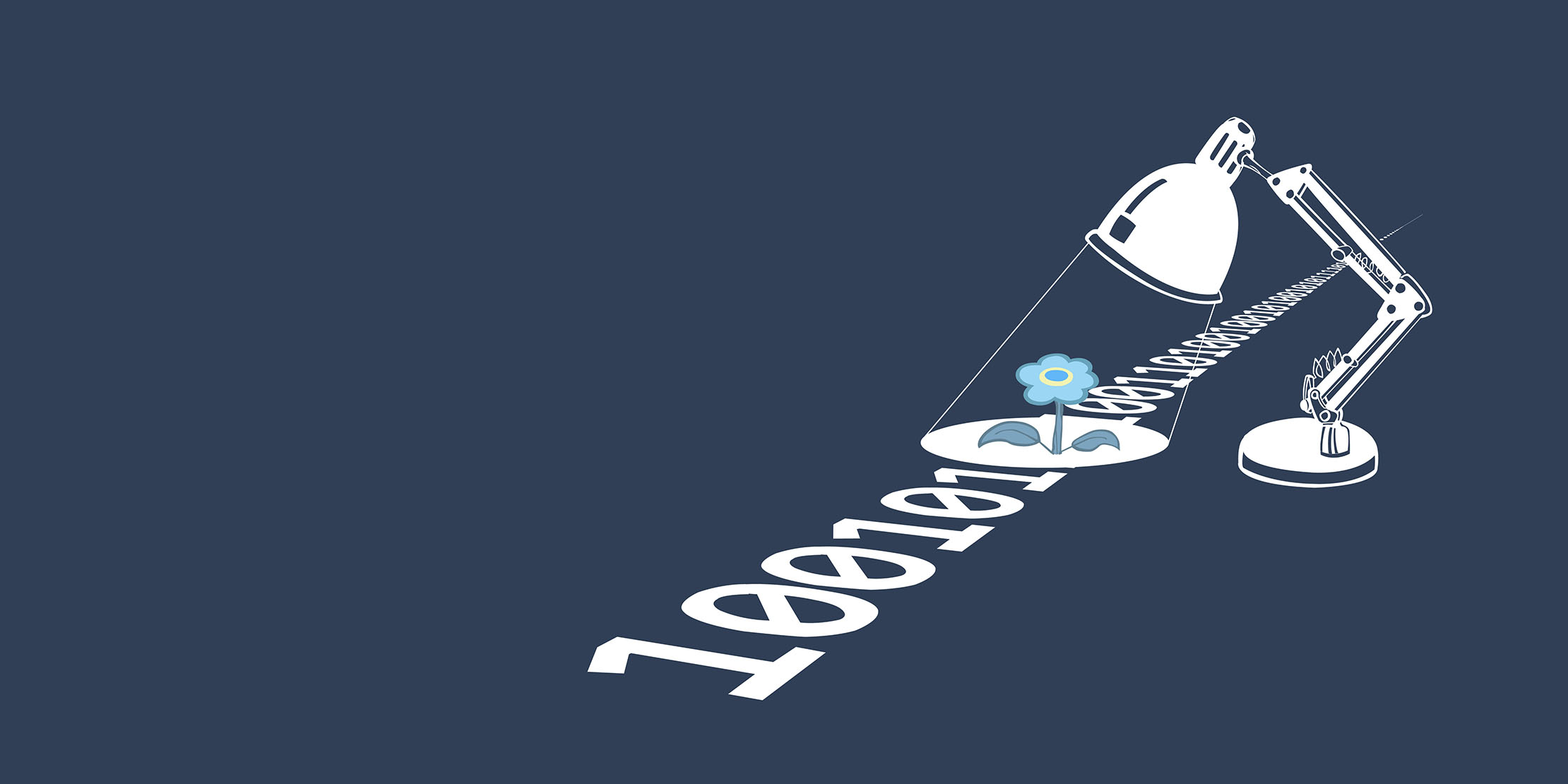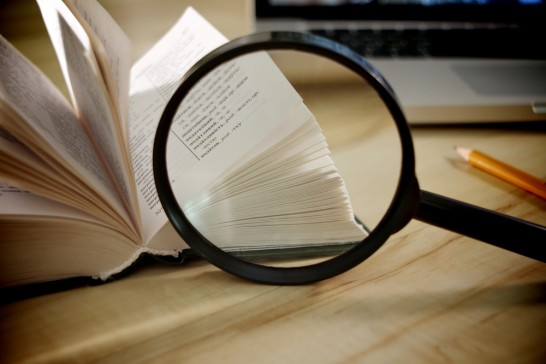
ZB-Lab
We combine digital resources with future-forward research services.
We take an experimental approach to the development of service solutions, and address both the potential of our digital assets and the needs of our user groups. We actively support open science and advocate an open library infrastructure.
Insights ZB-Lab
Don't miss a thing! In our newsletter, we provide insights into our work at the ZB-Lab about twice a year.
Team
Enabling open data
Making ZB resources more accessible
The ZB's digital infrastructure has grown historically and includes numerous data pools.
Searching, finding and scraping digital assets, which are often dispersed, can be very time-consuming for researchers in the digital humanities. We have created a prototype index ("One API") that brings together persistent identifiers of digital ZB resources (metadata, full texts and digital copies). We are also experimenting with making the aggregated data searchable and downloadable so that researchers no longer have to scrape it themselves.
The effort was worth it: the swisscollections association took up our idea of data downloads. We are currently working with the IT department of the University Library of Basel to enables swisscollections hit lists to be downloaded as data. This means that our idea of the “One API” is implemented with a reach that goes well beyond the ZB data. From around summer 2024, users will be able to download a zip folder with metadata about their search results in CSV, JSON and MARCXML formats with one click on swisscollections.ch. In addition, HTML pages with download links are provided, which allow all digital pages and OCR texts (if available) to be added to the hit list in one go. This new functionality makes it much easier for digital humanities researchers to create image and text corpora from digitized library and archive holdings.
Collect, save and share digital copies
With the help of the International Image Interoperability Framework (IIIF) we would like to give researchers the opportunity to collect digital copies worldwide, save them as a IIIF Collection and make them citable. Two tools are essential: the ZB-detektIIIF and the ZB-Viewer (Mirador Viewer).
The browser plugin ZB-detektIIIF automatically recognizes IIIF-compliant digital copies. They can be collected with a click and handed over to the Central Library's ZB Viewer (Mirador Viewer) as a IIIF colle ction. In order to permanently store IIIF collections and make them addressable and citable, we have developed an experimental prototype that allows collections to be stored on GitHub. Find out how this is possible here.
ction. In order to permanently store IIIF collections and make them addressable and citable, we have developed an experimental prototype that allows collections to be stored on GitHub. Find out how this is possible here.
Another feature is linked to our ZB viewer: You can open, compare and analyze any number of digital copies of e-manuscripta and e-rara next to each other directly in the ZB viewer. You can find the feature in the title view of a work under "IIIF". Add digital copies to the ZB viewer by clicking on “Mirador Viewer”.
Our IIIF tools can be found under this link.
ZB data in the Wikiverse
This ongoing initiative launched by the ZB-Lab consists of various projects in which we, together with colleagues from other ZB departments, want to make our collections usable on Wikipedia and in other Wiki contexts.
A larger, already completed project is entitled “Upload Steinfels Collection”. The aim was to make 1,916 Swiss landscape images from the eighteenth century, which are in the ZB's graphic collection, available on Wikimedia Commons. The mass upload tool Pattypan was used in the cross-departmental project. Further uploads are being planned.
Another project was to transfer biographies and catalogs of musicians from the ZB to Wikipedia and thus make them visible. In another project, we were able to expand the contextual perspective on ZB exhibits in one of our treasury exhibitions using QR codes (QRpedia), which link to Wikipedia articles.
Build data literacy
2023 Practice Studio Digital Humanities: Workshop series on tools and methods
There are already many opportunities to integrate digital tools into humanities research practice. But how do I know that I am using the right tool for my work? How much time do I lose with training? How can I get started with digital humanities in an uncomplicated way? Together with the Digital History Lab at the University of Zurich (DHL), we invited a number of experts to present their digital methods to us in the fall semester of 2023. In the Digital Humanities practice studio, we want to look over their shoulders as they work and understand how they have methodically adapted digital tools for their humanities work.
Summer Schools
2023 Summer School: Introduction to digital editing
What does it take to edit source texts professionally? The editing team from the Jeremias Gotthelf Research Center at the University of Bern, led by PD Dr. Christian von Zimmermann not only conveyed the technical know-how of how texts are coded in TEI. There was also an insight into the editorial work, into the different types of text commenting and into networking with authority data. The program was rounded off with two evening lectures related to the topic. For this we could Dr. Maria Effinger (Heidelberg University Library) and Stefan Dumont (Berlin-Brandenburg Academy of Sciences) win. The Digital Production and Platforms Department (ZB) and the ZB-Lab organized the summer school together. We would like to encourage young researchers to carry out their own digital edition projects.
2024 repeat as Winter School:
Due to high demand, we are repeating the “Introduction to digital editing” in February 2024. This time, the evening lectures will deepen questions about the reuse and usability of digital editions: The Gotthelf Edition team will be showing a preview of the new interface on February 8, 2024 the title: Usability, text genetics and context data. In his evening lecture on February 9, 2024, Prof. Dr. Thomas Stäcker (Darmstadt) points out the diverse possible uses of digital editions: Nothing for reading. Digital editions as raw material for computer-aided research.
2022 Summer School on literary text and data mining
It is very important for us, that researchers can make good use of our digitized works. In order to bring digital research methods to the people, the ZB-Lab, in collaboration with Prof. Dr. Berenike Herrmann (Bielefeld) and PD Dr. Jesko Reiling (Digital Production and Platforms) organized a summer school. At the two-day summer school (June 29 and 30, 2022), the participants learned the basics of text and data mining. The research group of Prof. Dr. Berenike Herrmann (Bielefeld) quickly provided us with the software R! and showed which questions can be asked and modeled on a corpus of German-speaking Swiss literature. The two days were extremely inspiring.
The course materials are accessable and the recorded lectures are on YouTube:
- Berenike Herrmann: Space and affect in German-speaking Swiss literature
- Barbara Piatti: Making the invisible visible. Literary geography as a source of inspiration
- Peter Leinen: Enabling digital research

IIIF explained
To make it easier to get started working with the International Image Interoperability Framework (IIIF), we created a series of video tutorials in our very first ZB-Lab project in winter 2020/21. They range from IIIF basic functions to the cross-platform search for digital copies to the knowledge base for creating your own IIIF manifestos. The tutorials traget group are researchers in the humanities who work with digital material.

In exchange with researchers
In-depth interviews
In in-depth interviews with young researchers in the humanities and digital humanities at the University of Zurich, we wanted to find out, on the one hand, what challenges they face in dealing with the ZB's digital infrastructure, holdings and services, and on the other hand, how their working methods are changing against the background of digital change has. The knowledge gained will serve as the basis for new and optimized ZB research services.

Open ZB-Lab Workshop
The ZB-Lab was present at the virtual Digital Humanities Conference (vDHd2021) with the Workshop Open ZB-Lab to get to the bottom of the needs of DH researchers. We gained a lot of insights and were able to use the topics identified in the workshop to deepen them in interviews with researchers.
On the road with ZB-Lab
Hackathons
2023 GLAMhack
Ein Highlight für alle Open Data Aficionados war der 9. Swiss Open Cultural Data Hackathon, der vom 29. bis 30. September im Musée d’ethnographie de Genève stattfand. Das diesjährige Thema war "Colonial Collections, provenance research and the application of the FAIR and CARE principles in data governance".
The ZB Zurich was there as a data provider - the ZB-Lab is responsible for this
created two exciting data sets and published them on opendata.swiss: printed travel reports from the 16th to 19th centuries and maps with title cartouches from the “Magnificent Atlases” collection. A motivated team of historians and developers took on the challenge of identifying colonial traces in early modern travelogues and identified named entities in the texts. The names and toponyms identified provide historians with valuable information for the search for colonial text traces.
2021 GLAMhack
The ZB-Lab was from the 16th to the 17th. April 2021 at the seventh Swiss Open Cultural Data Hackathon.
Matching the 3D model of the St. Gallen Globe, a concept was developed for an application that uses interactive elements and storytelling components to convey knowledge about this important object.
1971 and all that - Women’s Right to Vote in Switzerland -Using natural language processing, newspaper articles on women's suffrage passed in 1971 were visualized in the form of word clouds, thus making the political atmosphere of the time visible.
In the Making digitized scores audible project, old prints of e-rara were read out using machine learning using optical musical recognition - a form of optical character recognition for music - in order to make them audible using notation software.
We were also involved in the project A walk through Zurich around 1910. City views from 1910 by Friedrich Ruef-Hirt from the architectural history archive were mapped onto a 3D model of Langstrasse and made virtually accessible.

IIIF Annual Conference 2022
We were present at the annual IIIF Annual Conference 2022 (June 6-8, 2022) with two contributions. In the lecture "Reaching out to the Crowds - IIIF as a Scholarly Practice" we gave insights into results from usability tests around our IIIF tools as well as insights from interviews with young researchers in which the research practice of humanities scholars, among others, is in the foreground (you can find the presentation on YouTube). In keeping with this, the question of how to optimize the IIIF Image Viewer Mirador and make it more science-friendly was discussed in the workshop "Mirador as a Workspace" together with the IIIF community.

IIIF as research practice
With our initiatives in the area of IIIF, we would like to encourage humanities scholars to integrate IIIF into their research practice. Openly accessible resources and open source tools like our ZB-detektIIIF pave the way to sustainable handling of research data. We presented our vision at the Open Science Conference 2022 and in a more subject-specific format at the Swiss Congress of Art History on June 23, 2022.
Newsletter
In order to actually involve users in our developments and to collect their feedback and needs, we seek direct exchange. Are you a researcher in the digital humanities or a humanities scholar? Support your community by supporting us. Be part of our developments:
Join the ZB-Lab!
MAS BIW
In order to actually involve users in our developments and to collect their feedback and needs, we seek direct exchange. Are you a researcher in the digital humanities or a humanities scholar? Support your community by supporting us. Be part of our developments:
Our partners
We are participating in the development of the Center for Digital Editions and Edition Analysis (ZDE) and cooperate in the area of teaching digital skills with the Digital Library Space (DLS), the Digital History Lab (DHL) at the University of Zurich and the University Library of Basel.



